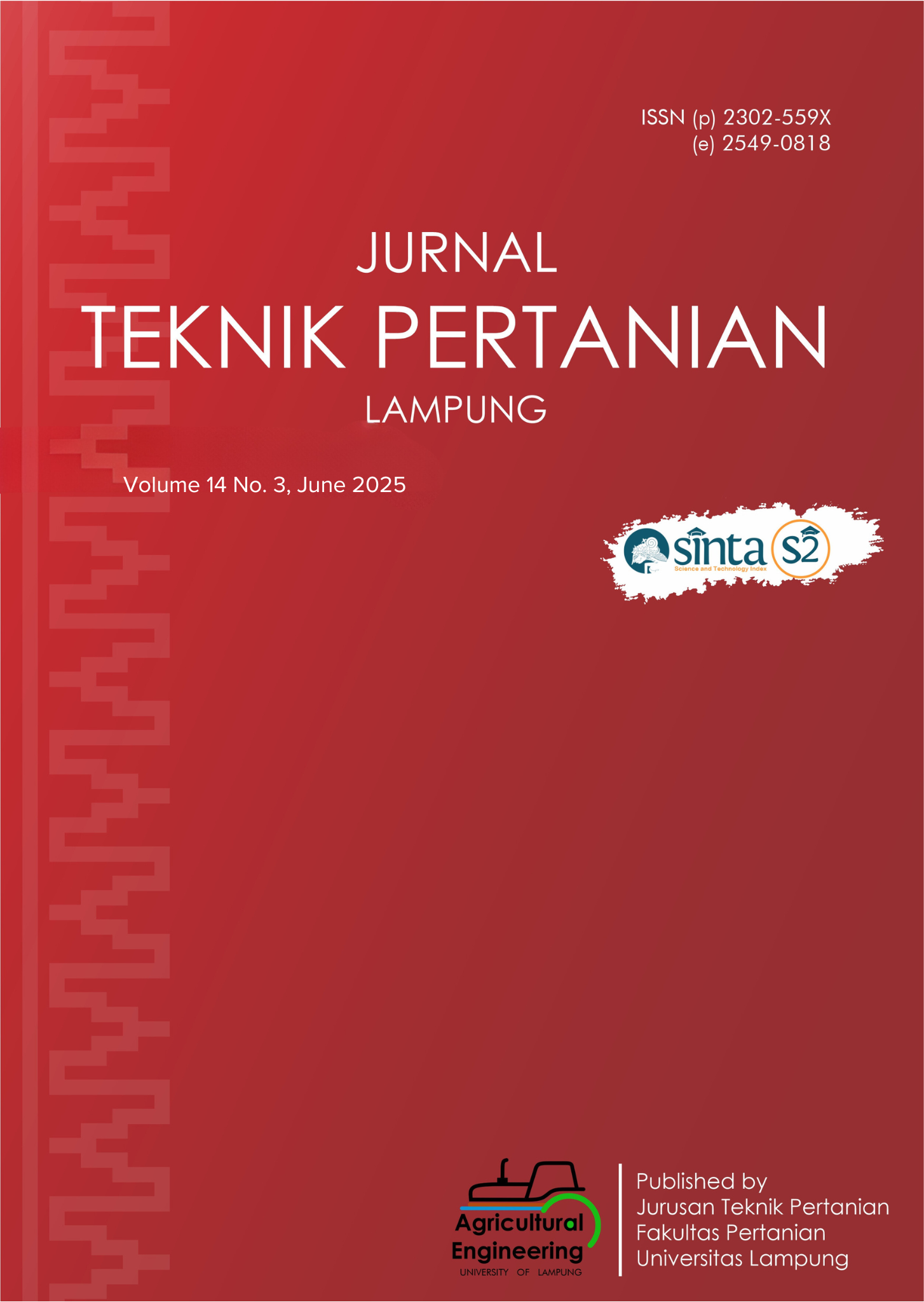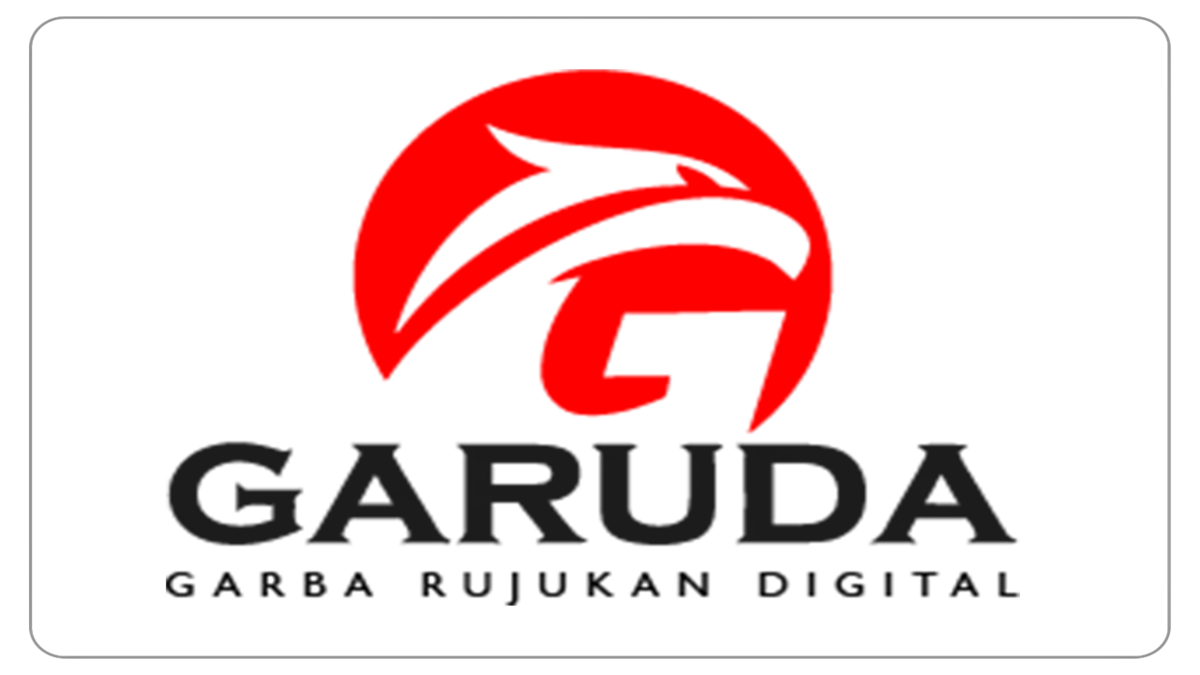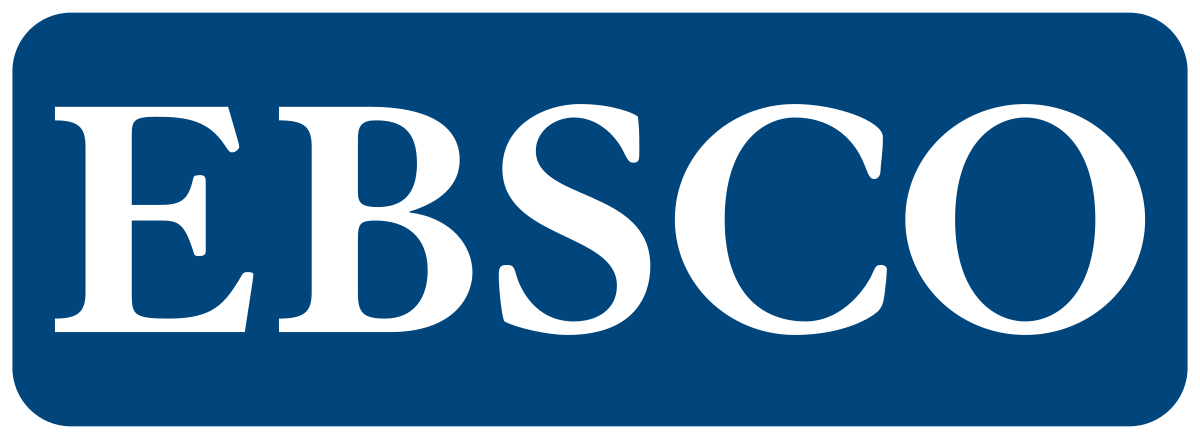Evaluation of Eucheuma cottonii and Gracilaria sp. as Food Buffer for The Ibu Kota Nusantara (IKN) Based on Proximate Analysis
DOI:
https://doi.org/10.23960/jtep-l.v14i3.836-845 Abstract View: 331
Abstract View: 331
Abstract
East Kalimantan Province has great opportunities as a buffer for the IKN economy based on the utilization of marine potential. Eucheuma cottonii and Gracilaria sp. are the red seaweeds (Rhodophyta) most widely cultivated in Indonesia. This study aims to analyze the proximate content in two types of red seaweed, namely E. cottonii (offshore cultivation) and Gracilaria sp. (pond cultivation) obtained from farmers in dry conditions cultivated around the waters of Balikpapan, East Kalimantan, Indonesia. The results of the analysis showed significant differences between cultivation locations. Gracilaria sp. (pond cultivation) taken from Handil (HTK) and Babulu Laut (BALUKE) is considered potential because it has low water content (HTK 26.99 ± 0.02%), and has higher ash content (BALUKE 31.18 ± 0.41%), fat (BALUKE 0.36 ± 0.01%), protein (BALUKE 10.01 ± 0.01%), and crude fiber (HTK 1.90 ± 0.16%) compared to E. cottonii. These findings provide important information for the development of seaweed as a natural resource for the food and health industries.
Keywords: Eucheuma cottonii, Food industry, Gracilaria sp., proximate content, Red seaweeds
Downloads
References
Afdal, M. (2023). Development of the pentahelix ecosystem as a strategy for optimizing leading marine commodities and village fisheries in Indonesia. Jurnal Multidisipliner Kapalamada, 2(04), 375-385. https://doi.org/10.62668/kapalamada.v2i04.825
AOAC (Association of Official Agricultural Chemists). (2016). Official Methods of Analysis of AOAC International. 20th ed. Rockville, AOAC International.
Bajad, R.B., Kamble, M.G., Gawai, S.R., Syed, I., & Roy, M. (2024). Analysis of physicochemical, functional, and antioxidant properties of four different Indian seaweed species. Future Foods, 10, 100435. https://doi.org/10.1016/j.fufo.2024.100435
Banach, J.L., Hoek‐van den Hil, E.F., & van der Fels‐Klerx, H.J. (2020). Food safety hazards in the European seaweed chain. Comprehensive Reviews in Food Science and Food Safety, 19(2), 332-364. https://doi.org/10.1111/1541-4337.12523
Basyuni, M., Puspita, M., Rahmania, R., Albasri, H., Pratama, I., Purbani, D., Aznawi, A.A., Mubaraq, A., Al-Mustaniroh, S.S., Menne, F., Rahmila, Y.I., Salmo lii, S.G., Susilowati, A. Larekeng, S.H., Ardli, E., & Kajita, T. (2024). Current biodiversity status, distribution, and prospects of seaweed in Indonesia: A systematic review. Heliyon, 10(1), e31073. https://doi.org/10.1016/j.heliyon.2024.e31073
Belwal, T., Cravotto, C., Prieto, M.A., Venskutonis, P.R., Daglia, M., Devkota, H.P., Baldi, A., Ezzat, S.M., Gómez-Gómezj, L., Salama, M.M., Campone, L., Rastrelli, L., Echave, J., Jafari, S.M., & Cravotto, G. (2022). Effects of different drying techniques on the quality and bioactive compounds of plant-based products: A critical review on current trends. Role of Drying in Food Quality, Security and Sustainability, 40(8), 1539-1561. https://doi.org/10.1080/07373937.2022.2068028
BPS (Badan Pusat Statistik). (2021). Dalam Angka Tahun 2021. Badan Pusat Statistik, Kalimantan Timur, Samarinda.
BSN (Badan Standardisai Nasional). (1992). SNI 01-2891-1992 – Cara Uji Makanan dan Minuman. Badan Standardisasi Nasional, Jakarta.
Charles, A.L., Sridhar, K., & Alamsjah, M.A. (2020). Effect of drying techniques on color and bioactive potential of two commercial Indonesian seaweed cultivars. Journal of Applied Phycology, 32(1), 563-572. https://doi.org/10.1007/s10811-019-01916-4
Djoh, E.F.K., Meiyasa, F., Ndahawali, S., & Tarigan, N. (2024). Chemical composition, antimicrobial, and antioxidant activity of Ulva reticulata seaweed extracted with different solvents. Biodiversitas Journal of Biological Diversity, 25(9). https://doi.org/10.13057/biodiv/d250914
Imchen, T., Tripathi, K., Ramakrishnan, R., & Akshay, K. (2024). Evaluation of the proximate composition and antioxidant capacity of from the https://doi.org/10.1016/j.algal.2024.103730
Konkan Coast of India. Algal Research, 83(11), 103730. Kazir, M., Abuhassira, Y., Robin, A., Nahor, O., Luo, J., Israel, A., Golberg, A., & Livney, Y.D. (2019). Extraction of proteins from two marine macroalgae, Ulva sp. and Gracilaria sp., for food application, and evaluating digestibility, amino acid composition and antioxidant properties of the protein concentrates. Food Hydrocolloids, 87, 194-203. https://doi.org/10.1016/j.foodhyd.2018.07.047
Ludher, E., & Woo, W.-L. (2024). Seaweed: Prospects for decarbonisation and food security in Southeast Asia. ISEAS – Yusof Ishak Institute Perspective, 2024(88): 12 p.
Mendes, M., Cotas, J., Pacheco, D., Ihle, K., Hillinger, A., Cascais, M., & Gonçalves, A. M. (2024). Red seaweed (Rhodophyta) phycocolloids: A road from the species to the industry application. Marine Drugs, 22(10), 432. https://doi.org/10.3390/md22100432
KKP (Kementerian Kelautan dan Perikanan). (2023). Profil Pasar Rumput Laut. Direktorat Jenderal Penguatan Daya Saing Produk Kelautan dan Perikanan, Jakarta.
Muñoz, I.L., & Díaz, N.F. (2020). Minerals in edible seaweed: Health benefits and food safety issues. Critical Reviews in Food Science and Nutrition, 62(6), 1592-1607. https://doi.org/10.1080/10408398.2020.1844637
Nurhaslina, C.R., Bacho, S.A., & Mustapa, A.N. (2022). Review on drying methods for herbal plants. Materials Today: Proceedings, 63(4), S122-S139. https://doi.org/10.1016/j.matpr.2022.02.052
Olsson, J., Toth, G.B., & Albers, E. (2020). Biochemical composition of red, green and brown seaweeds on the Swedish west coast. Journal of Applied Phycology, 32(5), 3305-3317. https://doi.org/10.1007/s10811-020-02145-w
Parvej, A.M., Rahman, M.A., Abdullah, M., Siddique, A.B., & Joardder, M.U. (2024). Evaluation of mechanical properties of dried fish from convective, and pulsed microwave convective drying: A comparison study. Measurement: Food, 14, 100172. https://doi.org/10.1016/j.meafoo.2024.100172
Purwaningsih, S., Ramadhan, W., Nabila, W.T., Deskawati, E., & Baabud, H.M. (2024). Dataset on the chemical composition and bioactive compound of estuarine seaweed Gracilaria from four different cultivation area in Java and Lombok Island, Indonesia. Data in Brief, 56, 110825. https://doi.org/10.1016/j.dib.2024.110825
Rogel-Castillo, C., Latorre-Castañeda, M., Muñoz-Muñoz, C., & Agurto-Muñoz, C. (2023). Seaweeds in food: Current trends. Plants, 12(12), 2287. https://doi.org/10.3390/plants12122287
Rosemary, T., Arulkumar, A., Paramasivam, S., Mondragon-Portocarrero, A., & Miranda, J.M. (2019). Biochemical, micronutrient and physicochemical properties of the dried red seaweeds Gracilaria edulis and Gracilaria corticata. Molecules, 24(12), 2225. https://doi.org/10.3390/molecules24122225
Salas, I., Fadhlullah, M., & Adi, C.P. (2023). Calorific and characteristics of seaweed Gracilaria sp. flour-based boba pearls in Indonesia. Journal of Applied Phycology. https://doi.org/10.21203/rs.3.rs-2825343/v1
Sánchez-García, F., Hernández, I., Palacios, V.M., & Roldán, A.M. (2021). Freshness quality and shelf life evaluation of the seaweed Ulva rigida through physical, chemical, microbiological, and sensory methods. Foods, 10(1), 181. https://doi.org/10.3390/foods10010181
Sumendar, R., Farida, A., Dwangga, M., & Ekananda, B. (2024). Pendampingan pemantauan bangunan penahan abrasi Pantai Manggar Baru Kampung Nelayan Kota Balikpapan. Pengabdian Masyarakat Sumber Daya Unggul, 2(1), 15-20.
Thamkaew, G., Sjöholm, I., & Galindo, F.G. (2021). A review of drying methods for improving the quality of dried herbs. Critical Reviews in Food Science and Nutrition, 61(11), 1763-1786. https://doi.org/10.1080/10408398.2020.1765309
Waldron, S., Langford, Z., Pasaribu, S., Nuryartono, N., Julianto, B., & Siradjuddin, I. (2023). The Indonesian seaweed industry in globalisation livelihood transformations in the Indonesian seaweed industry. Routledge, 51-76. https://doi.org/10.4324/9781003183860
Winarni, S., Zainuri, M., Endrawati, H., Arifan, F., Setyawan, A., & Wangi, A. P. (2021). Analysis proximate of Sargassum seaweed sp. Journal of Physics Conference Series, 1943, 012173. https://doi.org/10.1088/1742-6596/1943/1/012173
Ya’la, Z.R. (2022). Physical and chemical conditions of waters for seaweed cultivation in Morowali, Central Sulawesi, Indonesia. Journal of Science and Technology, 11(01), 20-29.
Yousaf, M.R., Widiawati, Y., Purnomoadi, A., Widodo, S., Shakeel, F., Rakhmani, S.I.W., Rohaeni, E.S., Parastiwi, H., Andreas, E.M.W., Miraya, N., & Ahmed, B. (2024). The effectiveness of dried seaweed Eucheuma cottonii on in vitro rumen fermentation and enteric methane production. Brazilian Journal of Biology, 84, e286929. https://doi.org/10.1590/1519 6984.286929
Yusuf, M., & Fitriani, U.N. (2021). Physicochemical, nutritional, and color characteristic of nori snack from snakehead fish (Ophiocephalus striatus), Eucheuma cottonii, and Gracilaria sp. IOP Conference Series Earth and Environmental Science, 819, 012012. https://doi.org/10.1088/1755-1315/819/1/012012
Zulfikar, A.L., Mahardika, S.G., Maulana, I., & Swandari, S. (2024). Identification of natural resource-based economic potential around New Indonesian Capital. Economic and Business Horizon, 3(2), 1-10.
Downloads
Published
How to Cite
Issue
Section
License
Authors who publish with this journal agree to the following terms:
Authors retain copyright and grant the journal right of first publication with the work simultaneously licensed under a Creative Commons Attribution-ShareAlike 4.0 International Lice that allows others to share the work with an acknowledgement of the work's authorship and initial publication in this journal.
Authors are able to enter into separate, additional contractual arrangements for the non-exclusive distribution of the journal's published version of the work (e.g., post it to an institutional repository or publish it in a book), with an acknowledgement of its initial publication in this journal.
Authors are permitted and encouraged to post their work online (e.g., in institutional repositories or on their website) prior to and during the submission process, as it can lead to productive exchanges, as well as earlier and greater citation of published work (See The Effect of Open Access).
Jurnal Teknik Pertanian Lampung

JTEPL is licensed under a Creative Commons Attribution-ShareAlike 4.0 International License.













